Can You Upload Games Made In Love To Steam

by Angela He
From Zero to Game Designer: how to starting time building video games even if you don't have any experience

2 years ago I was just 17 twelvemonth old high school student who knew cypher about coding. Only I pushed frontwards anyway, and inside a few months I published my first game on Steam.
Now, I've made over x games for desktop, web, and mobile, with over 1.9 million plays combined.
No matter your skill level, y'all can brand a game too. ii years agone, I thought it was impossible, only tried anyways. It was the hardest thing I'd always done. Simply it was worth it. Now, I realize game development is like any skill — y'all only get meliorate past doing, failing, then improving.
I taught myself everything I know. And now I'm going to teach you.
To make a game, you must go through the 6 stages of game development: Pattern. Fine art. Code. Sound. Polish. Market place.
The residuum of my mail will construction each phase into the post-obit:
- ?Advice I've curated from my and others' experiences.
- ?Resources I've found almost helpful.
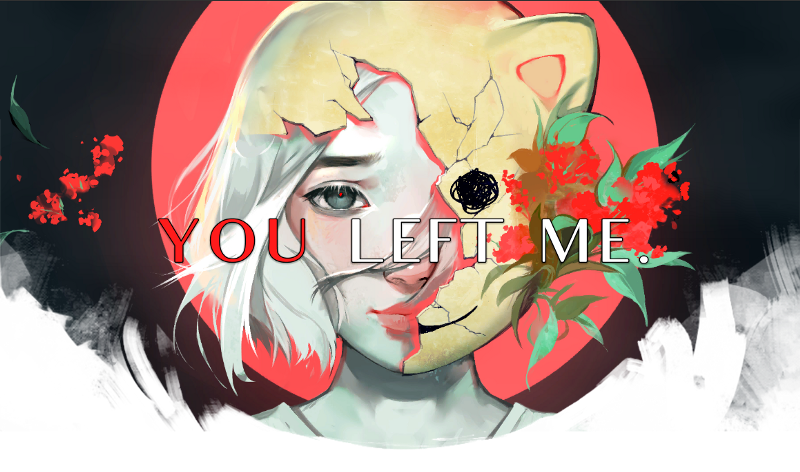
1. Design ?
Advice?
You've got a neat idea. *
Only how practice you capture it in writing?
Anybody'll take their own way of doing that best. Some etch 60-page design documents. Others, like me, write a page of badly-written notes, unreadable to anyone else. I don't know what'southward all-time for you. Just I tin give suggestions on what to write well-nigh:
- Hook. What makes your game thought great? For me, this is the almost important to write downwardly. Once you capture this, y'all tin can write down the side by side three points much easier. Is your game near something thought-provoking? Scandalous? Is it putting a new twist to an old classic? Or, is it doing something that'due south never been done before?
- Mechanics. What does your player do? And for what purpose? This is your gameplay. It can be every bit uncomplicated as pressing QWOP to motility in the game QWOP, to tapping buttons to chat in Mystic Messenger, to the tons of key combos in Dwarf Fortress.
- Story. What story should players retrieve your game by? What emotions should they go out your game with? Every game has a story. If the story isn't obvious, it is created by the player. A story can be created from the increasing numbers in 2048, the rise empires in Culture, and the silent interactions in Monument Valley. Recollect near what story'll be found in your game.
- Mood. What impression does your game make? What are the visuals? Sound? Commencement impressions matter. First impressions volition hook — then keep — the role player playing. Perhaps, you'll give your game a retro vibe with pixel graphics and chiptune music. Or, a mod, clean look with apartment geometries and instrumentals.

* Having a hard time thinking of an idea? Creative block hits us all.
- Join a game hackathon/jam. You and other participants'll be tasked to brand a game in a brusk amount of fourth dimension. Throughout, and afterwards, y'all'll be met with support from other jammers. And the excitement and inventiveness during a jam? Infectious. Don't know where to become started? Try Ludum Dare, one of the largest game jams.
- Go on a list of ideas. I and other developers I know jot down our ideas. That way, nosotros can refer back to our onetime ones when nosotros run out of new.
When the muse hits, stop any you're doing. Write that thought down. The adjacent time inventiveness ghosts, yous won't be left grasping for straws.
Resources ?
All of the below are tried and truthful. (?) means I use it currently.
Annotation-taking:
- Notes for Mac (?)
- Google Docs (?)
- Trello
Collaboration (for teams):
- Google Drive
- GitHub (?). Requires git and Unity .gitignore.
- Unity Collab. Easiest out of the iii. The gratuitous version has limitations.
Heads up — Unity is the game engine I use to make games, so I'll be mentioning it throughout. Feel free to use a dissimilar engine.
Game design:
- The Art of Game Design by Jesse Schell
- Gamasutra
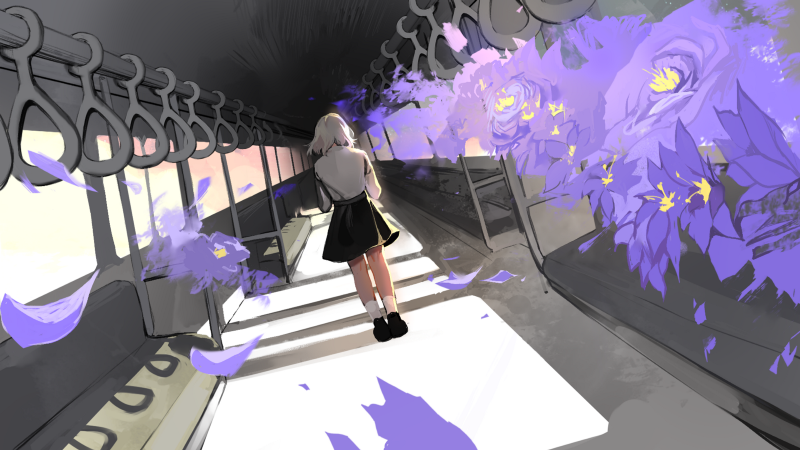
ii. Art ?
Communication?
You've planned out your thought; congrats, that's amazing! Now, you can work on the actual game.
(If y'all don't know how to code, I advise doing phase 3, Code, before Art. You don't want to create art that you'll trash afterwards because you can't code it in.)
Don't know how to draw? Practice not fret. Anyone tin can make something beautiful with the three basic visual principles: color, shape, infinite.
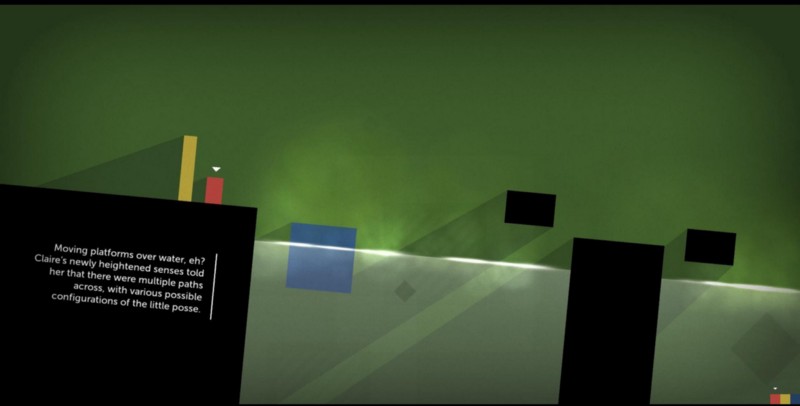
UI
Think about how y'all tin make information technology unique — accept a distinct colour scheme, font(s), shape(s), and icon(s) — while functional . Is the important information readable and obvious? Do the colors/fonts/icons distract from that at all?
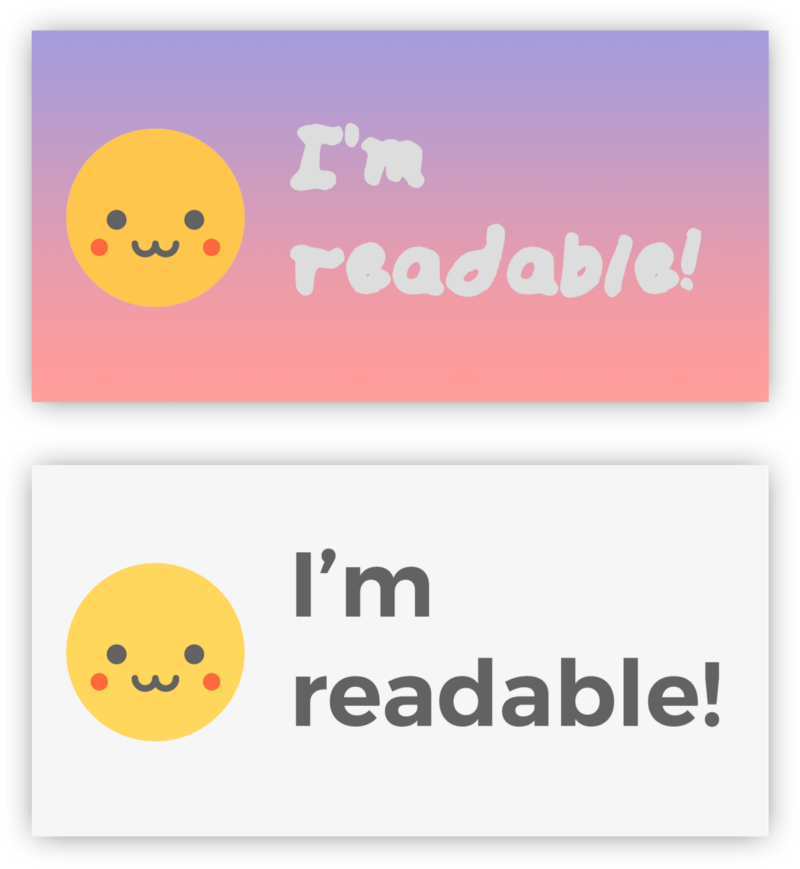
2D animations
You have two options:
- Frame-by-frame. Describe out each frame of the animation. For this, you should use sprite sheets with TexturePacker (or if y'all're using Unity, Sprite Packer).
- Bone-based. Draw each animated limb, then animate the limb'due south position, rotation, and whatnot in-game. Can be faster, easier, and salve memory. If yous're doing 2D and using Unity, try editing the pivots of sprites or Anima2D.
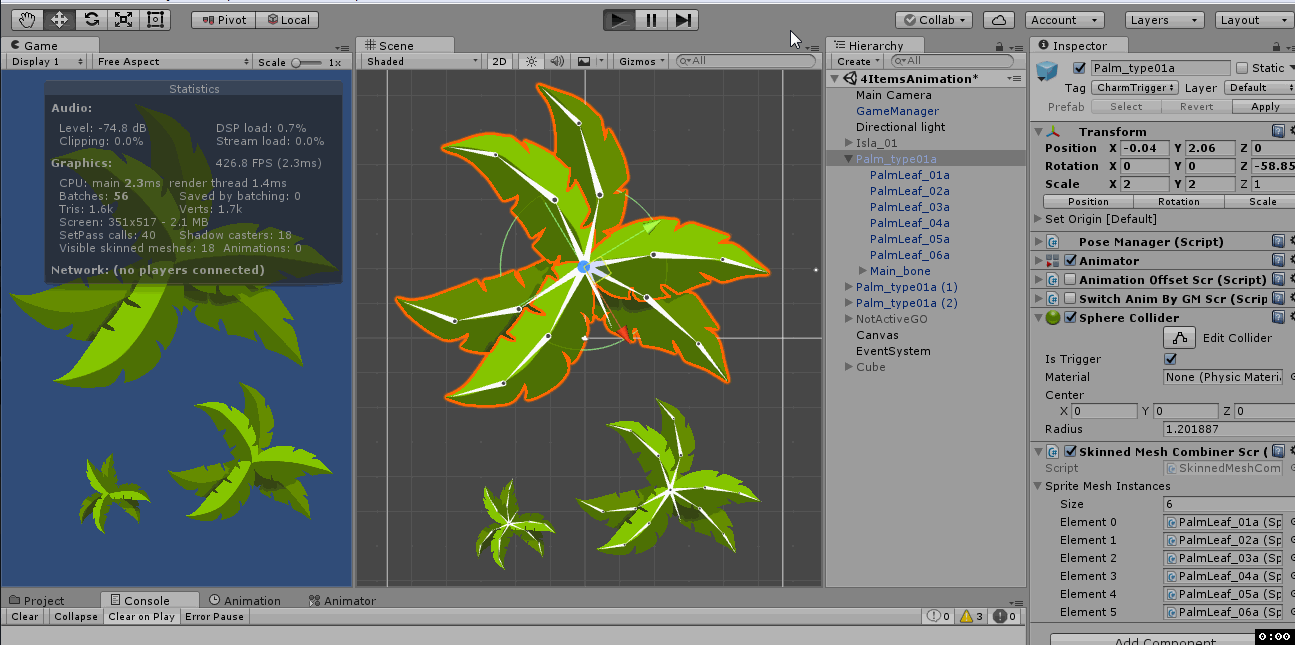
Misc
Hither are some general miscellaneous art tips that apply to non only art in games, only in other software as well.
- Tile patterned assets to create tiled images and save memory.
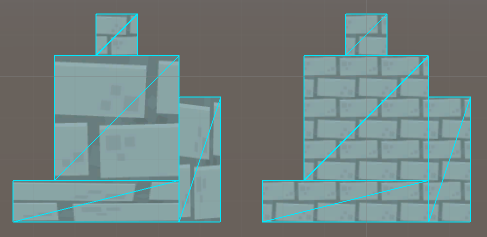
- 9-patch/9-slice assets with unscalable borders but a scalable center to create scalable images and salvage memory.
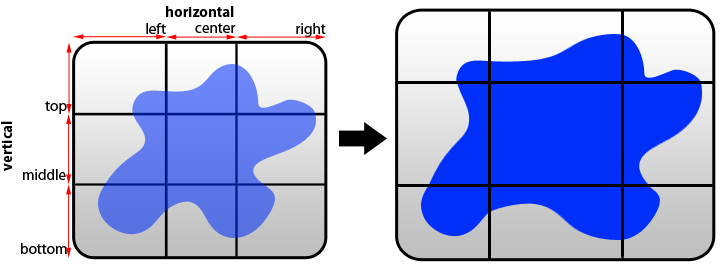
- Make the dimensions of each asset a multiple of four or a ability of 2 to save retention. Which one depends on how y'all're compressing the assets.
- If you're using Photoshop, use "File > Export > Layers to Files" to quickly export each layer every bit a file (e.g. PNG, JPEG).
Resource ?
Creating UI:
- Photoshop (?).
- Sketch.
UI principles:
- Google Cloth Design (?).
- Apple's UI Exercise's and Don'ts.
Creating 2d avails:
- Photoshop (?).
- Gimp.
- Paint Tool SAI. Proficient for smooth/anime styles.
Creating 3D avails:
- Blender (?). Powerful but steep learning curve.
- Maya. Good for blitheness.
- Max. Good for rendering.
Free assets:
- Behance (?). Fonts + icons + other designs.
- KennyNL. HQ, game-ready UI/2d/3D art.
- Open up Game Dev Art. Large library of user-generated art.
Inspiration:
- Dribbble. Designs from invite-simply designers.
- Behance (?). Designs from anyone with an account.
- itch.io (?). Beautiful indie games.
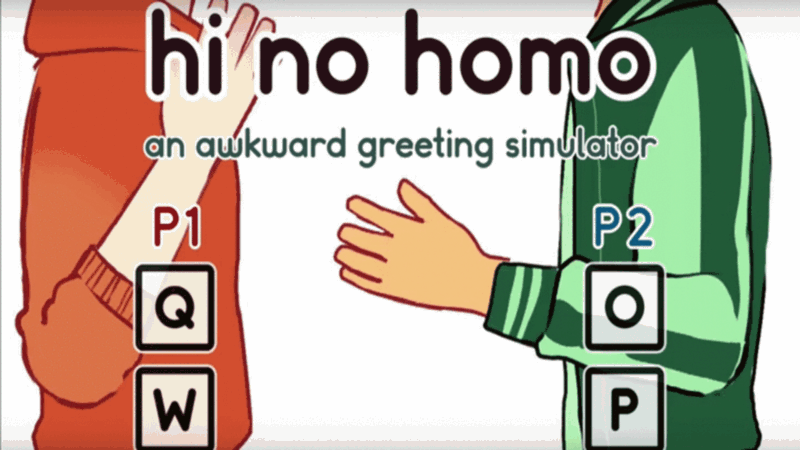
three. Lawmaking ?
Advice?
Debug.Log("Oh boy! Time to code!! ^_^"); Your first step? Decide on a game engine and an IDE (Integrated Development Environment — basically, an app that lets you lawmaking). My recommended game engines+IDEs are in Resources below.
Your 2nd stride? Code.

Don't know how to code? No worries. I got yous. Yous can learn.
These CS fundamentals should be enough to start. (All code examples here are in C++, one of the principal languages the Unity 3D game development framework uses.)
1) Data types and variables. At the root of all code is information. That information is stored in variables. You can declare a variable like this:
int i = 0; Let's break that downward.
int is the data type. i is the variable proper noun. And that = 0 assigns zero as the variable value.
And then what's this?
string s = "pusheen is best cat"; cord is the data blazon. s is the variable proper noun. And yep — y'all guessed it — "pusheen is all-time cat" is the variable value.
Some common information types: int and long are integers. float and double are decimal numbers. And string is any judgement. (Even an empty one — ""!)
Want to know more? Go through this and this.
two) If statements. If statements evaluate if a certain condition is true. If it is, run the code that's inside the if statement:
if (true){ //true is always true! doThings(); //I'm inside the if statement's brackets; run me! } If the condition isn't truthful, we can evaluate other conditions with else if:
int i = 1; if (i == 0){ doThings(); } else if (i == 1){ doOtherThings(); //I'g gonna be run! } Or, just run some other code with else:
int i = 60000; if (i == 0){ doThings(); } else { doOtherThings(); //I'm still gonna be run. } 3) For/while loops. While loops go along while a certain condition is still true, executing the same lines of lawmaking over and over again. When the condition is imitation, the while loop exits.
while (someBool == true){ //condition doThings(); //We'll go on doing things until someBool is faux } Remember: how long does this while loop final?
while (true){ doThings(); } For loops are basically while loops where:
int i = 0; while (i < condition){ doThings(); i++; //increment after doing things } That's equivalent to:
for (int i = 0; i < status; i++){ doThings(); } 4) Basic data structures. And so, we have information, and we means to evaluate and dispense that data. We can besides shop that data into some structure — a data structure. Data structures you should know are arrays, lists, queues, stacks, and sets.
Hither's a quick example of an array:
/* Say you have numbers 0 through 9 that yous want to store somewhere. You lot tin can store it in an array! */ int[] arr = new int[10]; /* The [] brackets declare an array. We assign a new assortment to arr of size x - that means information technology can agree 10 elements. Arr now looks like this: arr = [ 0 0 0 0 0 0 0 0 0 0 ] */ for (int i=0; i<10; i++){ arr[i]=i; //We assign whatever i is to the the ith index of arr. //Did you know data structures' indices start at 0? ? } /* After the for loop, our array information structure should expect similar this! arr = [ 0 one 2 3 4 five 6 7 8 9 ] */ To solidify your noesis of 2–4, go through this.
five) Functions and exceptions. Functions are basically a pocket-size line of code describing a large agglomeration of lawmaking. For case, if yous call:
EatBread(); And EatBread() looks similar:
void EatBread(){ //<---this is a role. breadAte=true; printf("I Can Feel THE CARBS COURSING THROUGH MY BODY"); } Then the telephone call to EatBread() is really a call to the 2 statements inside the EatBread() function.
If you practise something bad in your code, an exception might become thrown. They're angry scarlet errors there to tell you, hey, back up, what you did correct at that place just ain't 'workin out logically. Go revise information technology.
To learn more than about functions, go here; for exceptions, get here.
Then, there're other things you should know:
6) Language. What language are y'all going to code in? C++? Javascript? C#? Every linguistic communication is written somewhat differently and can let you do dissimilar things.
7) API (Awarding Programming Interface). One time you know the basics, yous'll have to learn the specific API of your game engine. APIs are essentially a bunch of powerful tools wrapped in simple classes and functions that you tin can call. APIs brand life easier. Way easier.
Lastly:
eight) Look at an case projection in your chosen game engine. Unreal and Unity both take a ton of free example projects. This'll let you discover how everything comes together. Plus, you tin can build your game thought off of the projection. (I built my first game off of Corgi Engine.)
if (you.getThisFar()==true){ veryProud=truthful; you.didIt(); //Electric current MOOD: THE SH⭐⭐KEST ??? } A discussion of encouragement: I know. Coding is scary at first. Nothing makes sense, you're hitting constant roadblocks, and y'all might want to quit in the face of failures and exceptions. It doesn't mean you're bad at coding. Coding is challenging. Information technology'south understandable to feel incompetent at first.
Simply information technology merely takes time, similar any other skill. Information technology'll get easier. And information technology'll get fun (at least, it did for me).

Important game programming concepts:
- Object orientation. Makes programming feel more natural.
- Naming conventions. Name your classes, methods, and variables as something that apparently conveys its purpose. For case, a melee attack function should be named meleeAttack(), not mA() or protecbutalsoattac(). Yous (and others who read your code) should know what'southward going on.
- Decomposition. Put lawmaking that repeats itself into a separate function. Call that function instead of duplicating the repeatable code.
- Singleton design pattern. Allows data that a lot of things need to be stored in one identify.
- Static avoidance. Beyond singletons, I'd avoid making static variables— their lifetime is the game'southward lifetime, they're slower, and they can accept unexpected behaviors in the editor.
- Observer design pattern . Allows things that must happen depending on another thing to not waste the reckoner'south fourth dimension checking that other matter.
Important Unity-specific things:
- Coroutines. IEnumerators and Coroutines allow you to start doing things, continue doing things until some time has passed, then stop. I use them all the time: for bursts of visual effects; for lerping movement; for waiting for a scene to load before grabbing the scene's objects.
- ScriptableObject. These contain data with less overhead than MonoBehaviors.
Resource ?
Game engines:
- Brand your own. Requires C/C++. Low level. Really, really low.
- Unity (?). 2D/3D. Requires Javascript/C#. Mid-level. Cantankerous-platform.
- Unreal Engine. 2D/3D. Requires C++. Mid-level. Cross-platform. Notes: 2d back up is not great.
- pixi.js (?). 2nd. Requires Javascript. Mid-level. Spider web.
- GameMaker Studio. 2D/3D. Requires GML. Beginner level. Cross-platform.
- Corona. 2D. Requires Lua. Beginner level. Cross-platform.
IDEs:
- Visual Studio Code (?). For MacOS. Gives me no lag and has awesome, VSCode-exclusive features (such as inline reference info, quick navigation (⌘T)).
- Visual Studio (?). For Windows.
- MonoDevelop. Comes with Unity. Tends to lag.
Free Unity assets:
For Unity, tons of complimentary avails exist on the Unity Nugget Store, GitHub, bitbucket, and other sites. I use at least 2 in every project. Make your life easier with assets, but realize they're non perfect. If y'all spot mistakes, don't hesitate to fix them and/or ping the developers.
- TextMeshPro (?).
- LeanTween (?).
- Fungus.
- Corgi Engine.
- Dialogue System.
- Post Processing Stack.
- Keijiro Takahashi. Works at Unity. Has astonishing open source Unity visual effects projects!
Final but not least, my #1 solution for coding issues: Google!

4. Audio ?
Advice?
Start: Practise you want sound?
Audio tin do wonders for immersion and mood. But, it tin cost memory.
If the answer'south yes, what sound?
Will yous include music? Audio furnishings? Voiceovers or narration?
For any of the in a higher place, record and mix them in a way that matches your game'south mood. For example, Bastion uses organic mouth and instrument sounds, matching its game world. Crypt of the Necrodancer uses a blend of electronic beats and chiptune rock to match the colorful, rhythmic game.
"Immersion is male monarch."-Darren Korb, Supergiant Games
If your sound doesn't lucifer your game's mood, it could detract from immersion. How will your audio match your game?
Resources ?
Sound tools:
- Logic Pro. $200. MacOS just.
- FL Studio (?). $99–899. Has gratis demo.
- Reaper. $60–225.
- Brazenness (?). Free. Limited capabilities. Useful for cleaning audio.
Retro audio effect generators:
- Chiptone.
- Bfxr.
- Leshy SFMaker.
- as3sfxr.
Gratuitous sounds:
- Soundcloud (?). Soundcloud has a ton of gorgeous gems under Artistic Commons (CC). Here's a playlist to get started. Brand sure to provide attribution if needed.
- Incompetech (?). CC music. Must aspect.
- Bensound. CC music. Must aspect.

5. Polish ?
Advice?
Hey! You're here! You made it; that's absolutely incredible (I'm serious, if you lot become this far, I'd love to hear about your game; hitting me up)!
Y'all're done.. right?
Well. There'south a 99.99999% chance there're bugs.
It'southward fourth dimension to bug test.

Bug testing your game
- Get others — not you lot — to play it. Preferably in front of you, because if they run into a bug, they might not realize or have a difficult fourth dimension describing information technology.
- Play information technology on all targeted platforms. It may work in the editor, but does information technology work where it matters? For Linux and the different versions of Android peculiarly, I notice that things get a footling wonky.
Alright. You lot've found a issues. What now?
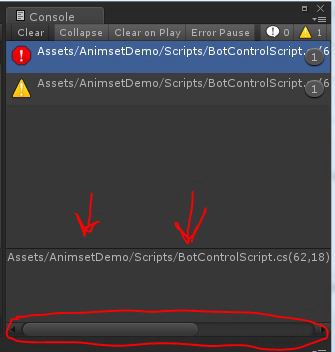
- Cheque the console for exceptions. Institute 1? Not bad! Find the file and line number where the exception was thrown. If the exception sounds similar something from Mars, Google it and learn almost information technology. Then figure out why that line number is throwing that exception.
- Notwithstanding can't effigy it out? Write to console. Start tossing in them log statements in the place(s) you think is causing you trouble. Print variable values, and see whether what's printed is what'south expected. If non, fix that.
- When worse comes to worse, check logs. The logs of your projection will give y'all way more info than the console. Read the last lines where the exception occurred. Google anything you don't know. Can you fix information technology now?
- Sleep. Information technology'll get fixed in the morning. This is just a bad dream. Correct? ?
Common errors
- NullReferenceException.
var.doThing(); //throws NullReferenceException: Object reference not set to an case of an object Problem: You lot're doing a thing on a nothing (nonexistent) variable.
Quick fix: Bank check if the variable is null before doing the thing.
if(var != nothing) { var.doThing(); // do the matter safely! } - SyntaxErrorException.
Problem: Your code has invalid syntax.
Quick fix: In the Exception bulletin, it should tell y'all what character is throwing the error. Change that grapheme.
Annotation: If the character is a double quote, make sure yous're using dumb quotes instead of smart quotes:
" //dumb quote " //smart quote. I hope these'll give you problem at some point in your life. ? - Pinkish or blackness screen.
Possible trouble: Some shader can't render.
Possible causes: You're using a 3D shader for a 2d game. Or, yous're using some shader feature unsupported by the target OS. Be sure to use mobile shaders for mobile games.

After yous're done debugging, smooth your game off by optimizing its retention usage and performance. This'll get in download faster and estrus up people's devices less.
General optimization tips
- Set the target frame rate. The frame rate could be twenty for a visual novel or 60 for a get-go-person shooter. A lower than default target frame rate allows the game to spend less fourth dimension rendering frames.
- Animation / particles / occlusion culling. Alternative means that things invisible to the camera aren't rendered. Characters'll but animate, particles'll only update, and 3D models will but be rendered when in view.


- Shrink textures and sound. Crisis compress textures. Stream music and decompress sound furnishings on load. Decrease the audio quality. Note that compression may or may not decrease the quality of assets noticeably.
- Object pooling. Avoid instantiating and destroying many objects at once to prevent huge spikes. Instead, object pool them in a Listing, Queue, or other data structure. Things similar bullets should exist object pooled.
- Don't let raycasts hit things that don't need input. Raycasts are like little rays that shoot from your fingers or mouse everytime you lot tap or click. Remove objects that don't react to those inputs from raycast calculations.
If you're upward for a challenge:
- Optimize shaders. Give each renderer a fabric. This'll salvage resource in the beginning since the game doesn't accept to create new materials for everything. Accept the shader for the material but include what'southward functionally needed (for example, a button that doesn't need masking can use a Sprite shader instead).
- In Unity, Utilise AssetBundles instead of Resources. AssetBundles volition relieve memory by pulling from online (e.k. dropbox) or local storage (e.g. hd). I oasis't tried too much due to the poor documentation, though.
Resources ?
All of these are from Unity but can be applicative to other engines.
Scripts:
- Optimizing scripts in Unity games (?)
Art:
- A guide to optimizing Unity UI (?)
- Art Asset best practice guide (?)
Retention:
- Reducing the file size of your build (?)
- Memory
Platform-specific:
- Applied guide to optimization for mobiles (?)
- WebGL functioning considerations (?)
- Retentiveness Considerations when targeting WebGL (?)
- Olly's seven stages of optimizations for mobile VR
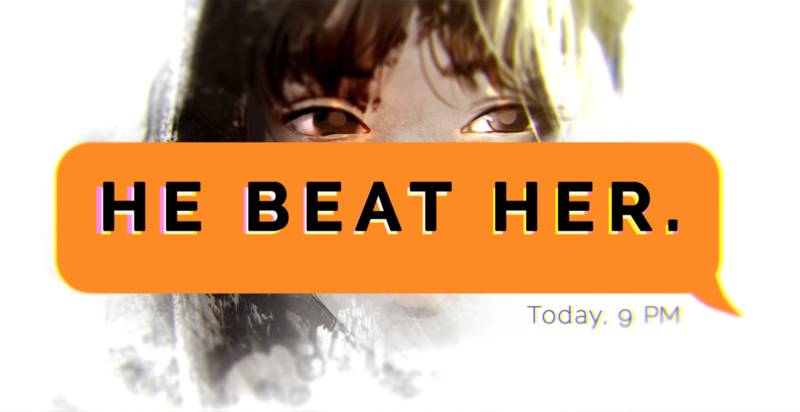
half-dozen. Market ?
Advice?
Congrats! ?? You've made something. Information technology's time to evidence the world what y'all've made.
Personally, marketing is my most anxiety-inducing phase. If y'all, too, get hundred-to-one, the game programmer community is helpful. You're not solitary in this. And you've come up and so far — might too get through to the end, correct?
You lot'll never know if it'll be a hitting unless yous attempt.

- Draft. Create drafts of your game folio on all your targeted game distribution platforms. Discover a listing of platforms in Resources beneath.
- Network. If yous go the total networking mile, you'll want to email game press, showcase in festivals, and attend conferences.
With game press, email your unlisted game folio a calendar week before release. Give people some time to write about it. It's likely they won't write near it at all. I've plant that press loves a compelling developer story, unique/controversial concept, and, near chiefly, a presskit.
How do you observe emails? You tin..
- Discover writers y'all similar and Google their proper noun. Their email is jump to come up somewhere: Twitter, LinkedIn, etc. Or..
- Detect the magazine/new's company-wide email on their About page. It'due south commonly in the format of tips@visitor.com.
Exercise not email press about your game if they explicitly don't comprehend your genre/targeted platform.
Festivals can become you awards and/or professional recognition by other developers and printing.
Conferences are what you make of it: they can be all about networking with other developers, companies, and printing (go get them business cards!); updating your latest game dev know-how; playing others' games; or meeting up with internet friends.
Game conference tickets are expensive. If you're a student, think about applying for scholarships for them. The IGDA Scholars program gives you lot some especially astonishing networking and outcome opportunities.
iii. Youtubers/Streamers. You can get video coverage of your game by:
- Ranking high on game distribution platforms.
- Emailing. If you email, don't talk about yourself; talk almost the game. Keep it sweet, short, and compelling. Use centre-catching photos and gifs.
How practise you find emails? Look at their About page. If you tin can't find it there, Google them and run across if their other social media have information technology.

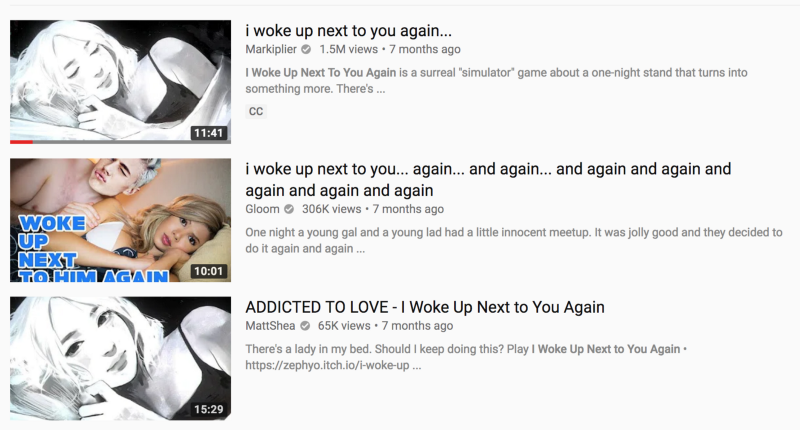
4. Social media.
Social media is an astonishing marketing tool. Agar.io constitute its ascension from 4chan, Butterfly Soup got mad boosts from Twitter, and some form of social media always ends up in my meridian 4 referrers:


My favorite social media platforms for marketing are in Resources beneath.

A concluding note — Publisher or cocky-publish? Game marketing is a lot. Do you lot want a publisher to take care of all that? Want to go the Hotline Miami ten Devolver Digital route, or rely on Farmville and Doki Doki Literature Club's word-of-mouth?
With a publisher, you'll have to do your research to find a good one. After, you'll sign paperwork and go through legal hoops. Plus, information technology's a huge financial investment.
Past yourself, you'll have to put a lot of time and effort into learning marketing. You may love information technology. You may hate it. And you might not do a peachy job of it, either. But it's costless, and you learn valuable skills.
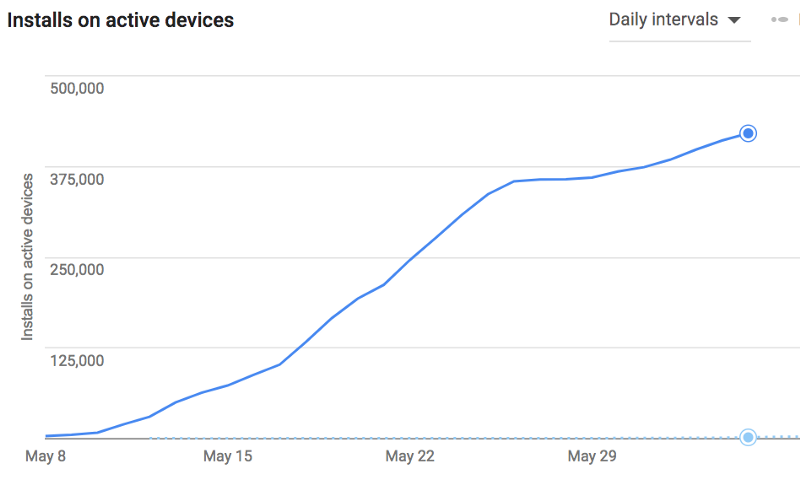
For me, I'll always cocky-publish. I beloved learning new things. Likewise, I firmly believe that a truly great game will succeed no matter what, as long every bit some marketing effort was put.
6. Hitting that Publish push!
??Yooo, you DID it!! ?Now relax, sit back, take hold of a yummy drink, and take some time for yourself! You've worked so difficult. You deserve information technology.
And recollect that, even if your game doesn't get the reception you expected, that'southward ok. Information technology's non gonna be perfect your first time. My first game on Steam only has 255 downloads.
The facts are, you lot made a game. You learned so much. That'southward plenty.
And there's always a next time!

Resources ?
Game distribution platforms:
- Steam (?). PC. Requires $100 USD fee per game.
- Origin. PC.
- GOG. PC. Free to publish. Game must go accustomed.
- Mac App Store. MacOS. Requires Apple Developer account.
- crawling.io (?). PC/Web. Costless to publish.
- Game Jolt (?). PC/Web. Free to publish.
- Armor Games (?). Free to publish. Must apply to be a developer.
- Kongregate (?). Web. Free to publish.
- Newgrounds (?). Due westeb. Free to publish.
- GitHub (?). Due westeb. Free to publish on your own site with domain proper name formatted as "___.github.io".
- Amazon. Spider web/Mobile. Free to publish.
- Google Play (?). Mobile. Requires sometime $25 USD fee.
- iOS App Shop (?). Mobile. Requires Apple Programmer account.
Game press:
- IndieGames.
- Siliconera.
- FreeGamesPlanet. Super nice admin.
- PCGamer.
- Kotaku.
- Rock Paper Shotgun.
- Polygon.
- Giant Bomb.
- EuroGamer.
Game festivals:
- Independent Games Festival (IGF). Deadline effectually October.
- Indiecade. Deadline effectually May/June.
- Swedish Game Awards. Deadline around July.
- Due south by Southwest Festival (SXSW). Deadline effectually December.
- The Game Awards. Deadline effectually November.
Game conferences:
- Game Developer's Conference (GDC). San Francisco.
- Penny Arcade Expo (PAX). Seattle/Boston/Philadelphia/Melbourne.
- Electronic Entertainment Expo (E3). Los Angeles.
- Tokyo Game Show. Nihon.
- Steam Dev Days. Seattle. For Steam developers simply.
Emailing:
- presskit()
Social media:
- reddit (?). Pick an advisable subreddit. Some of my favorites are /r/WebGames, /r/IndieGaming/, and /r/visualnovels.

- Facebook (?). Post on your Facebook Page (if yous have one) and personal facebook (if you're comfortable). At that place'south also tons of Facebook Groups where you can show off your game! Here'due south some:
GameDev Show and Examination
Welcome to GameDev Testify and Test - a sister group to the Indie Game developer groups. The purpose of this group is to…
Indie Game Developers
Independent Game Developers group for pocket-sized companies and individuals designing and publishing their own games. **READ…
Indie Game Promo
Indie Game Promo has 47,645 members. Sister group to Indie Game Dev and Indie Game Conversation for the purpose of promoting…
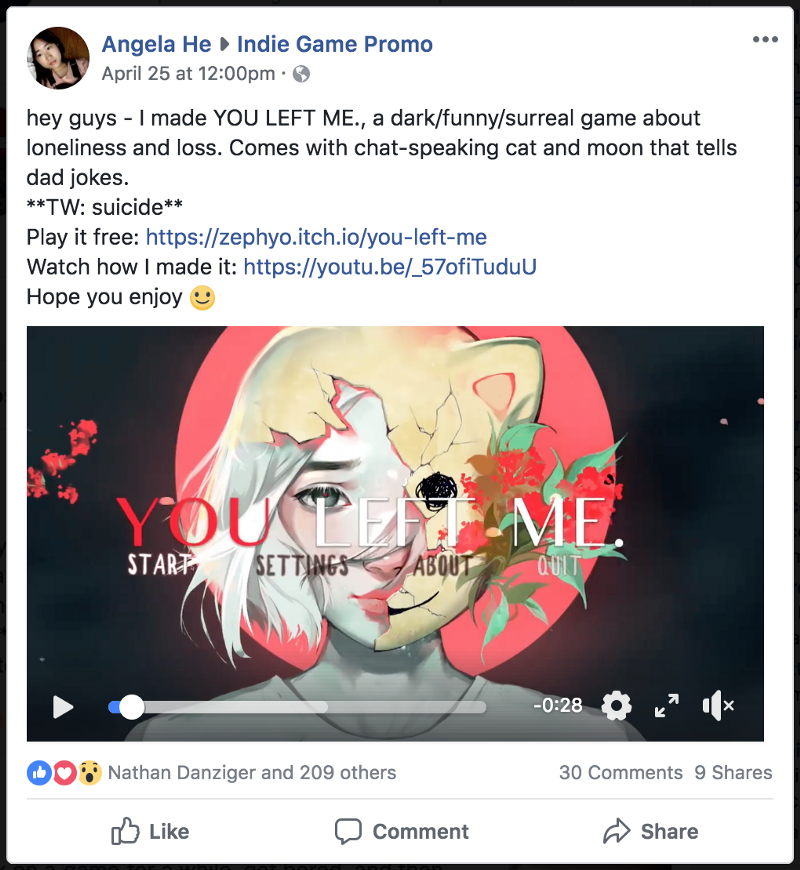
- Tumblr (?).
- Twitter (?). Try using tags like #gamedev, #indiedev, and #screenshotsaturday to get discovered.
Customs:
- /r/gamedev (?).
- Ludum Dare (?).
- Indie Game Devs (?).
Determination
There's no cheat code to making a game. It's just a lot of determination and effort.
"Backside every Half Life, Minecraft and Uncharted, at that place are OCEANS of blood, sweat and tears."— Ken Levine
Yous'll get confused. You lot'll make mistakes. You might even cry (I did—and nonetheless do).
But that'southward okay. It means you're growing. If you're putting in that much try, I believe in you and your game: You tin practise it.
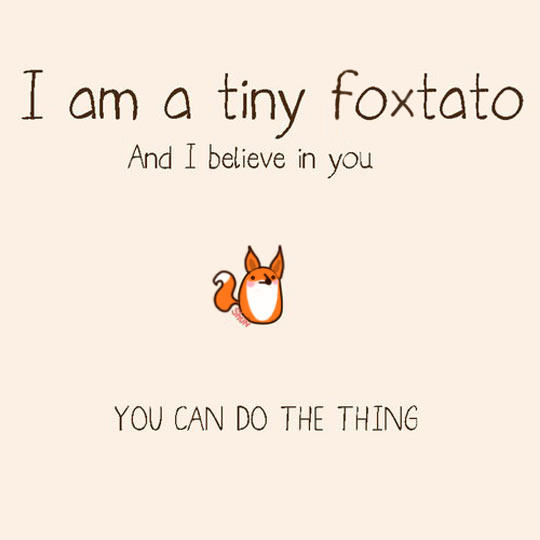

If you liked reading my first article, be sure to requite a ?(or several — did you lot know you lot can give more than i?) It'd mean the world ?
You can besides follow/DM me on Twitter, Tumblr, and GitHub, and buy me a java if y'all wish.
Learn to code for gratis. freeCodeCamp's open source curriculum has helped more than than xl,000 people go jobs equally developers. Become started
Source: https://www.freecodecamp.org/news/from-zero-to-game-designer-how-to-start-building-video-games-even-if-you-dont-have-any-experience-5e2f9f45f4bb/
Posted by: blackledgethatepat.blogspot.com

0 Response to "Can You Upload Games Made In Love To Steam"
Post a Comment